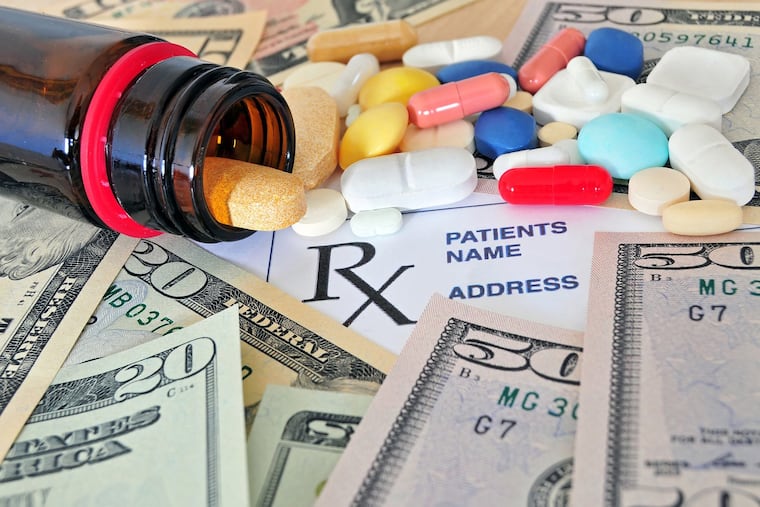Rising drug costs overwhelm many seniors | Expert Opinion
Coupons are available to bring costs down for the latest medical therapies and medications, but many people do not realize these coupons are only valid if you are under age 65.

Upon release from the hospital after a small stroke, my 68-year-old patient was started on Eliquis, a powerful blood thinner. A heart monitor showed periods of atrial fibrillation, and it was believed the stroke was caused by a small blood clot that went from his heart to his brain. A blood thinner was started to prevent reoccurrence.
He was given a one-week supply of Eliquis samples at discharge to get started. When he went to the pharmacy to fill the prescription, he learned it would cost him $300 a month, which he could not afford. He called my office to see whether there was an alternative. A different medication, a generic called warfarin, was started, instead, costing him only $5 a month. Warfarin involves initially getting weekly blood tests to monitor the dose, and is associated with a higher risk of internal bleeding.
I saw another patient in my office the same week because of her history of heart failure and diabetes. At 76 years old, she was started on empaglifloxin (Jardiance), which in a recent trial showed a 25% decrease in cardiac death or hospitalization. This was similar to results shown by a similar drug called dapagliflozin (Farxiga). I later learned she never filled the prescription. It was not covered by her health plan and she was quoted a price of $419.69 a month at CVS.
Drug costs are still increasing. People who have good medical insurance and are under 65 have access to the latest medical therapies and medications. Coupons are available, from pharma companies, to bring costs down to as little as $5 to $30 dollars a month. Many people do not realize that these coupons are valid only if you are under 65.
This has become a growing problem in cardiology because these newer medications are sometimes better than the generics many patients can afford. The list of cardiac medications that have been shown to be more effective than the closest generic also includes Entresto (for heart failure at $567.56 a month); Vascepa (for high triglycerides at $334.88 a month) and Repatha or Praluent (for high cholesterol at $452.88 a month). These drugs are restricted in their use and associated with high co-pays. Unfortunately, there is a list like this for every specialty, not just cardiology.
Advances in medications that help prevent heart attacks, stroke, and the need for bypass surgery should be available to everyone, not just those with good insurance.
Pharmaceutical companies will argue that they will waive costs for the needy, and this is true. If a doctor and patient fill out a financial need form, medication can be delivered to the doctor’s office on a compassionate basis. In practice, this rarely occurs because of strict income limits and required forms.
Insurance companies deal with these high-priced medications by restricting use (called a pre-authorization), often requiring the use of specialty pharmacies, or charging high co-pays.
The answer to solving this is to change how much these medications cost. People living in other countries pay a fraction of the amount we pay in the United States. A good example is Eliquis, made in this country but 87% cheaper when purchased overseas. In the U.S., 60 tablets of Eliquis retail for $556.15; the identical pills in Canada are $140.89, and in Turkey $60.
A quick fix for our elderly would be to end the age cutoff that exists for coupons. The problem is that it is illegal for pharmaceutical companies to give any discount for Medicare Part D, which covers drugs. This anti-kickback statute, passed by Congress in 1972, prohibits drug manufacturers from offering a discount for meds paid for by a federal health care program.
It seems time for this law to be changed. It is self-serving and helps one group: big pharma.
As a doctor, I am conflicted. I want to prescribe the best possible medications for my patients, but some of these drugs have become so expensive that many of my patients cannot afford them. Until laws are changed, options include going without the expensive, non-generic medication and using the best possible alternatives, utilizing such websites as GoodRx (where the cost for Eliquis is still very pricey at $472 a month), or getting medications overseas (against federal law and accepting the risk of receiving possibly contaminated or fraudulent drugs). None of these is good option. The only way to fix the system is for the cost to come down.
David Becker is a frequent Inquirer contributor and a board-certified cardiologist with Chestnut Hill Temple Cardiology in Flourtown. He has been in practice for more than 25 years.